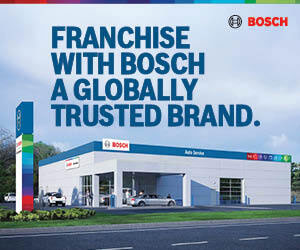Refugees of the Recession Invest in Pet Waste
For Many, the Key to Job Security and Financial Empowerment Has Been Starting Their Own Business
September 02, 2009 // Franchising.com // Charlottesville, VA — This time last year, Joe Gliottone, of Newburyport, Massachusetts, was the Senior Vice President of print production at Arnold Worldwide, one of the largest advertising agencies in the Northeast. Today, Joe scoops poop.
In his six-and-a-half years at Arnold Worldwide, Joe managed all of the printing needs for a number of national brands, including Royal Caribbean, RadioShack and Volkswagen, one of the most glamorous advertisers of all time. But when they switched agencies, budgets were cut and so was Joe. He became a refugee of the recession, he says.
"That's just how the advertising industry works—it's continuously shifting, expanding and contracting."
Like millions of other white collar salary men and women who have been laid off by the economic crisis, Joe had two choices: either look for a new job or start a business of his own; the first being a daunting task considering that he had seen his role in advertising change so often throughout the past fifteen years that staying in the field meant he would have to reinvent himself completely.
Instead, he reevaluated his career path and decided to switch tracks completely—Joe became a DoodyCalls pet-waste-removal franchise owner.
"If I was going to have to start over, I figured why not try something new altogether?" he said about his decision to purchase the franchise on Boston's North Shore. "It's a growth industry that will never be taken over by technology—and that's enough for me."
Today's economic crisis presents a dilemma for many high-level professionals who have climbed the corporate ladder only to find themselves stepping out into thin air later in life, losing their prestigious jobs and above-average salaries. For Joe, the key to job security and financial empowerment has been starting his new business.
In times of recession, franchise systems have a history of outperforming non-franchise businesses, according to a report by FRANdata prepared for the IFA Educational Foundation.
During the recession of 2000-2001, the franchising industry created approximately 140,000 new businesses and 1.2 million new jobs over the five-year period following September 11, 2001, and expanded by 18 percent.
But today's recession has created a major new obstacle that would-be entrepreneurs are pressed to overcome—tightened lending practices and limited access to institutional financing.
Rather then taking out hefty business loans, some people are turning to low-cost franchises that can be financed independently. One example is DoodyCalls, with start-up costs ranging from $39,730 to $63,920, which includes an initial $29,500 franchise fee.
For the franchise company, a shortage of institutional funding and loans has been a non-issue. In the past two years, DoodyCalls franchise sales have jumped. From 2004 to 2007, the company operated 16 locations. But in the past two years, it has expanded by 29 locations and is now up to 45, with operations in 23 states.
"There are two main reasons why people are buying our franchise system," says Jacob D'Aniello, founder and CEO of DoodyCalls. "First, we have a proven system to support and grow our franchises. The second—an indicator of the current financial times—is the fact that we're a low-cost business to purchase and launch. Most of our franchise owners have financed the venture on their own completely."
A FRANdata report prepared for the IFA Educational Foundation states that franchises with initial costs of less than $50,000 are assumed to be financed primarily through non-institutional sources, such as family and friends.
In the past three months alone, DoodyCalls has added five new franchise locations, all of which were purchased by individuals who previously held executive and managerial positions, and all purchased their businesses independently. In addition to Joe Gliottone, they are:
- Jeff Merten, formerly an executive chef at two country clubs, now owns a franchise in the city of Richmond, Virginia.
- Ramon Constante, a former Vice President and applications development manager at Wachovia/Wells Fargo, now owns a franchise in Charlotte, North Carolina.
- Fred Telmanowski, formerly a Vice President and Senior Consultant at the Aon Corporation, now owns a franchise slightly north of Baltimore, Maryland.
- Gil Virgin, a project manager with Ashland, Inc. and his wife, Amy, a former real estate agent, now own a franchise together in Lexington, Kentucky.
"My wife and I spent six months looking at franchises, but we just kept gravitating back to DoodyCalls," said Joe. "This wasn't some 'go out and pick up poop' operation—there were systems in place well beyond what we expected—scheduling and route development, marketing strategies and materials, a dedicated call center and public relations team."
###
| ADVERTISE | SPONSORED CONTENT |
Franchise News
By Type
- Expansions & Growth
- Financial & Earnings Claims
- Mergers & Acquisitions
- Personnel Changes
- Conferences & Events
- Product Announcements
- Media Coverage
- Strategic Alliances
By Sector
| ADVERTISE | SPONSORED CONTENT |



 The franchise opportunities listed above are not related to or endorsed by Franchising.com or Franchise Update Media Group. We are not engaged in, supporting, or endorsing any specific franchise, business opportunity, company or individual. No statement in this site is to be construed as a recommendation. We encourage prospective franchise buyers to perform extensive due diligence when considering a franchise opportunity.
The franchise opportunities listed above are not related to or endorsed by Franchising.com or Franchise Update Media Group. We are not engaged in, supporting, or endorsing any specific franchise, business opportunity, company or individual. No statement in this site is to be construed as a recommendation. We encourage prospective franchise buyers to perform extensive due diligence when considering a franchise opportunity.